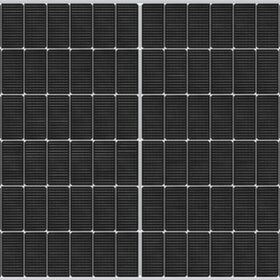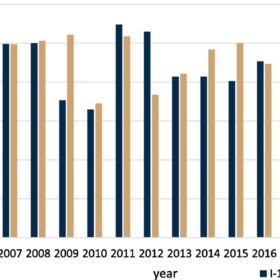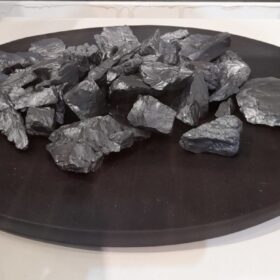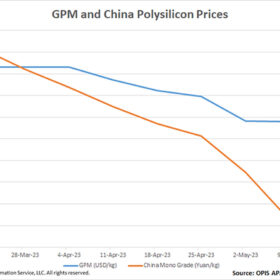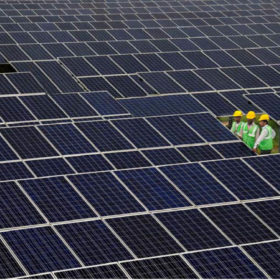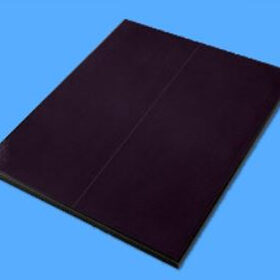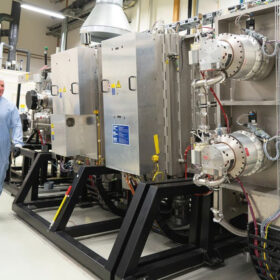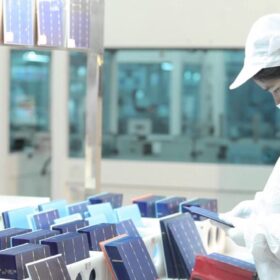Qcells builds pilot line for perovskite-silicon tandem PV cells in South Korea
Qcells says it is building a pilot line for perovskite-silicon tandem solar cells that will start operations later this year in South Korea. It is working closely with its team in Germany, where it has already established another pilot line for tandem cells.
Sharp unveils 570 W TOPCon solar panel with 22.07% efficiency
Sharp’s new IEC61215- and IEC61730-certified solar panel offers a power conversion efficiency of 22.07% and a bifaciality of more than 80%. The operating temperature coefficient is -0.30% per C and its power tolerance is 5%.
Researchers assess degradation in PV systems older than 15 years
Scientists have used the US National Renewable Energy Laboratory’s (NREL) HOMER software to calculate the degradation of solar panels deployed in two rooftop PV systems operating in Germany since 2003. Their calculations focused on the energy productivity of the systems.
Tongwei led global polysilicon capacity in 2022, says Bernreuter Research
The world’s top four largest polysilicon producers in 2022 were Chinese companies, led by Tongwei with 345,000 metric tons (MT), followed by GCL Technology, Daqo, Xinte, and Wacker Chemie.
Avoiding PV buyer’s remorse
New entrants to solar equipment procurement may be surprised to encounter constantly amended contract terms, index-linked price rises, and near-worthless defect warranties, but they reflect recent supply chain troubles. Clean Energy Associates’ Martin Deak offers a buyers guide.
Polysilicon prices preserve downward trend, weighed down by supply factors
In a new weekly update for pv magazine, OPIS, a Dow Jones company, provides a quick look at the main price trends in the global PV industry.
New leaders emerge in India’s 2022 solar market
Mercom’s latest report says the Indian solar sector saw significant changes in the players’ market share in 2022—a year heavily impacted by policies like basic customs duty on cells and modules and Approved List of Models and Manufacturers.
Kaneka presents 29.2%-efficient 2T silicon-perovskite tandem solar cell
Kaneka’s two-terminal tandem perovskite solar cell has achieved the highest efficiency ever recorded for such a device based on an industrial Czochralski (CZ) silicon wafer. It has an open-circuit voltage of 1.929 V, a short-circuit current density of 19.5 mA cm−2, and a fill factor of 77.55%.
First Solar acquires Swedish perovskite specialist Evolar
First Solar has agreed to pay $38 million to buy Swedish manufacturing startup Evolar AB, as it seeks to expand development of high-efficiency tandem PV tech.
Federal agents raid JinkoSolar factory in Florida
U.S. Homeland Security officers executed a search warrant on a solar panel manufacturing facility in Jacksonville.

